
Egon Schiele Painting Reproductions 2 of 3
1890-1918
Austrian Secession/Expressionist Painter
67 Schiele Paintings
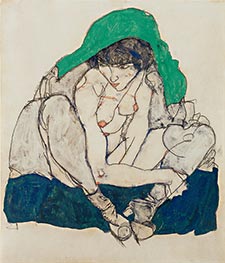
Crouching Woman with Green Headscarf 1914
Paper Art Print
$62.44
$62.44
SKU: SCE-17236
Egon Schiele
Original Size: 47 x 41 cm
Leopold Museum, Vienna, Austria
Egon Schiele
Original Size: 47 x 41 cm
Leopold Museum, Vienna, Austria
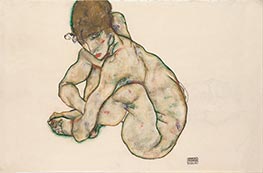
Crouching Nude Girl 1914
Paper Art Print
$62.44
$62.44
SKU: SCE-17237
Egon Schiele
Original Size: 31.3 x 48.2 cm
Leopold Museum, Vienna, Austria
Egon Schiele
Original Size: 31.3 x 48.2 cm
Leopold Museum, Vienna, Austria
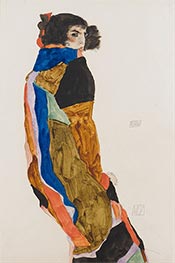
Moa 1911
Paper Art Print
$62.44
$62.44
SKU: SCE-17238
Egon Schiele
Original Size: 47.8 x 31.5 cm
Leopold Museum, Vienna, Austria
Egon Schiele
Original Size: 47.8 x 31.5 cm
Leopold Museum, Vienna, Austria
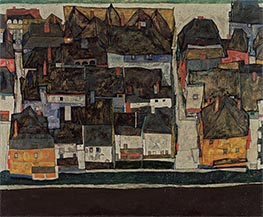
The Small City IV 1914
Oil Painting
$1089
$1089
Canvas Print
$82.31
$82.31
SKU: SCE-17239
Egon Schiele
Original Size: 99.7 x 120.7 cm
Leopold Museum, Vienna, Austria
Egon Schiele
Original Size: 99.7 x 120.7 cm
Leopold Museum, Vienna, Austria
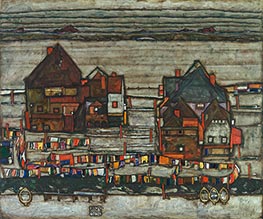
Houses with Laundry (Vorstadt - Suburb II) 1914
Oil Painting
$1244
$1244
Canvas Print
$83.04
$83.04
SKU: SCE-17240
Egon Schiele
Original Size: 100 x 120 cm
Leopold Museum, Vienna, Austria
Egon Schiele
Original Size: 100 x 120 cm
Leopold Museum, Vienna, Austria
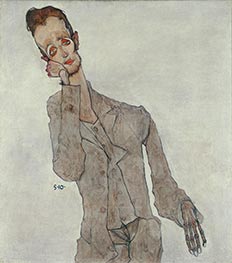
Portrait of Painter Karl Zakovsek 1910
Oil Painting
$1122
$1122
Canvas Print
$89.77
$89.77
SKU: SCE-17241
Egon Schiele
Original Size: 100 x 89.8 cm
Private Collection
Egon Schiele
Original Size: 100 x 89.8 cm
Private Collection
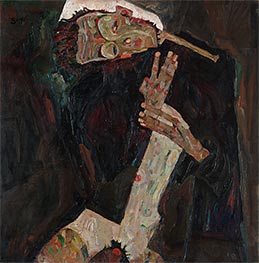
The Poet (Self-Portrait) 1911
Oil Painting
$981
$981
Canvas Print
$98.49
$98.49
SKU: SCE-17242
Egon Schiele
Original Size: 80 x 79.7 cm
Leopold Museum, Vienna, Austria
Egon Schiele
Original Size: 80 x 79.7 cm
Leopold Museum, Vienna, Austria
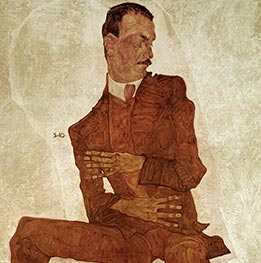
Portrait Arthur Roessler 1910
Oil Painting
$1170
$1170
Canvas Print
$99.21
$99.21
SKU: SCE-17243
Egon Schiele
Original Size: 99.6 x 99.8 cm
Wien Museum Karlsplatz, Vienna, Austria
Egon Schiele
Original Size: 99.6 x 99.8 cm
Wien Museum Karlsplatz, Vienna, Austria
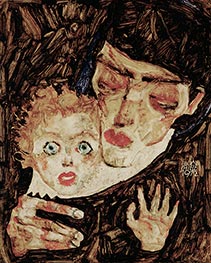
Mother and Child II 1912
Oil Painting
$905
$905
Canvas Print
$65.95
$65.95
SKU: SCE-17244
Egon Schiele
Original Size: 36.6 x 29.3 cm
Leopold Museum, Vienna, Austria
Egon Schiele
Original Size: 36.6 x 29.3 cm
Leopold Museum, Vienna, Austria
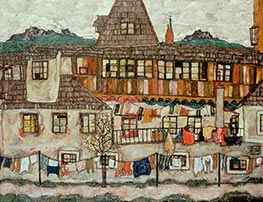
House with Drying Laundry 1917
Oil Painting
$1281
$1281
Canvas Print
$76.69
$76.69
SKU: SCE-17245
Egon Schiele
Original Size: 110 x 140.4 cm
Leopold Museum, Vienna, Austria
Egon Schiele
Original Size: 110 x 140.4 cm
Leopold Museum, Vienna, Austria
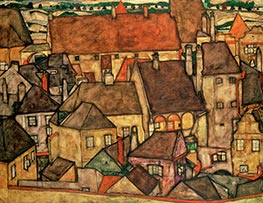
Yellow Town 1914
Oil Painting
$1268
$1268
Canvas Print
$77.24
$77.24
SKU: SCE-17246
Egon Schiele
Original Size: 110 x 140 cm
Private Collection
Egon Schiele
Original Size: 110 x 140 cm
Private Collection
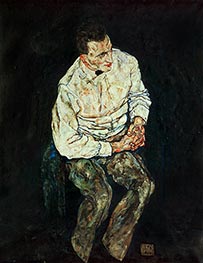
Portrait of Karl Gruenwald 1917
Oil Painting
$1331
$1331
Canvas Print
$76.87
$76.87
SKU: SCE-17247
Egon Schiele
Original Size: 140.7 x 110.2 cm
Private Collection
Egon Schiele
Original Size: 140.7 x 110.2 cm
Private Collection
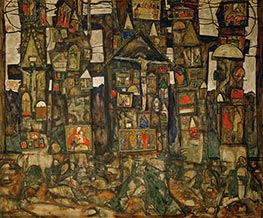
Shrines in the Wood 1915
Oil Painting
$1287
$1287
Canvas Print
$82.86
$82.86
SKU: SCE-17248
Egon Schiele
Original Size: 100 x 120.5 cm
Private Collection
Egon Schiele
Original Size: 100 x 120.5 cm
Private Collection
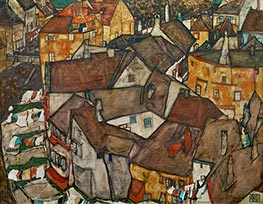
Krumau - Crescent of Houses (The Small City V) 1915
Oil Painting
$1198
$1198
Canvas Print
$77.59
$77.59
SKU: SCE-17249
Egon Schiele
Original Size: 109.7 x 140 cm
The Israel Museum, Jerusalem, Israel
Egon Schiele
Original Size: 109.7 x 140 cm
The Israel Museum, Jerusalem, Israel
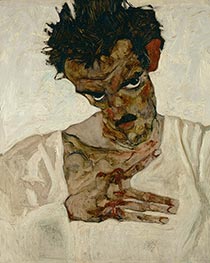
Self-Portrait with Bent Head 1912
Oil Painting
$841
$841
Canvas Print
$65.95
$65.95
SKU: SCE-17250
Egon Schiele
Original Size: 42.2 x 33.7 cm
Leopold Museum, Vienna, Austria
Egon Schiele
Original Size: 42.2 x 33.7 cm
Leopold Museum, Vienna, Austria
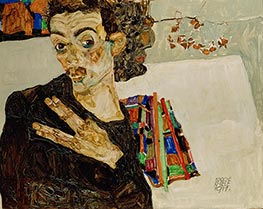
Self-Portrait with Spread Fingers 1911
Oil Painting
$855
$855
Canvas Print
$65.95
$65.95
SKU: SCE-17251
Egon Schiele
Original Size: 27.5 x 34 cm
Wien Museum Karlsplatz, Vienna, Austria
Egon Schiele
Original Size: 27.5 x 34 cm
Wien Museum Karlsplatz, Vienna, Austria
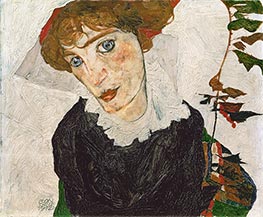
Portrait of Wally 1912
Oil Painting
$918
$918
Canvas Print
$65.95
$65.95
SKU: SCE-17252
Egon Schiele
Original Size: 32.7 x 39.8 cm
Leopold Museum, Vienna, Austria
Egon Schiele
Original Size: 32.7 x 39.8 cm
Leopold Museum, Vienna, Austria
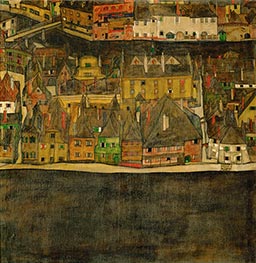
Small Town (III) 1913
Oil Painting
$1267
$1267
Canvas Print
$97.03
$97.03
SKU: SCE-17253
Egon Schiele
Original Size: 98.5 x 90.5 cm
Private Collection
Egon Schiele
Original Size: 98.5 x 90.5 cm
Private Collection
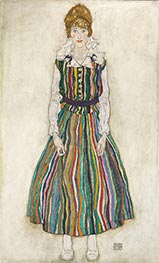
Portrait of Edith Schiele 1915
Oil Painting
$1876
$1876
Canvas Print
$65.95
$65.95
SKU: SCE-17254
Egon Schiele
Original Size: 180 x 110 cm
Haags Gemeentemuseum, The Hague, Netherlands
Egon Schiele
Original Size: 180 x 110 cm
Haags Gemeentemuseum, The Hague, Netherlands
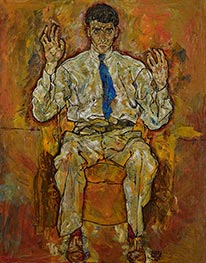
Portrait of Paris von Gütersloh 1918
Oil Painting
$1323
$1323
Canvas Print
$78.32
$78.32
SKU: SCE-17255
Egon Schiele
Original Size: 140 x 110.3 cm
Minneapolis Institute of Arts, Minnesota, USA
Egon Schiele
Original Size: 140 x 110.3 cm
Minneapolis Institute of Arts, Minnesota, USA
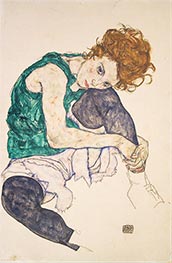
Seated Woman with Bent Knees 1917
Paper Art Print
$62.44
$62.44
SKU: SCE-17256
Egon Schiele
Original Size: 46 x 30.5 cm
National Gallery, Prague, Czech Republic
Egon Schiele
Original Size: 46 x 30.5 cm
National Gallery, Prague, Czech Republic
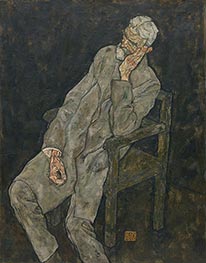
Portrait of Johann Harms 1916
Oil Painting
$1306
$1306
Canvas Print
$78.14
$78.14
SKU: SCE-17257
Egon Schiele
Original Size: 141 x 110.8 cm
Solomon R. Guggenheim Museum, New York, USA
Egon Schiele
Original Size: 141 x 110.8 cm
Solomon R. Guggenheim Museum, New York, USA
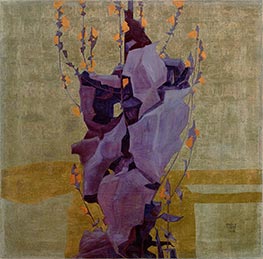
Stylized Flower on a Decorative Background 1908
Oil Painting
$778
$778
Canvas Print
$99.94
$99.94
SKU: SCE-17258
Egon Schiele
Original Size: 65.5 x 65.5 cm
Leopold Museum, Vienna, Austria
Egon Schiele
Original Size: 65.5 x 65.5 cm
Leopold Museum, Vienna, Austria
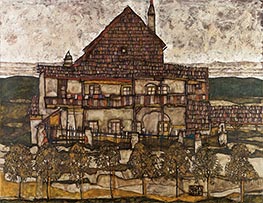
House with Shingle Roof (Old House II) 1915
Oil Painting
$1707
$1707
Canvas Print
$77.24
$77.24
SKU: SCE-17259
Egon Schiele
Original Size: 110 x 140 cm
Leopold Museum, Vienna, Austria
Egon Schiele
Original Size: 110 x 140 cm
Leopold Museum, Vienna, Austria